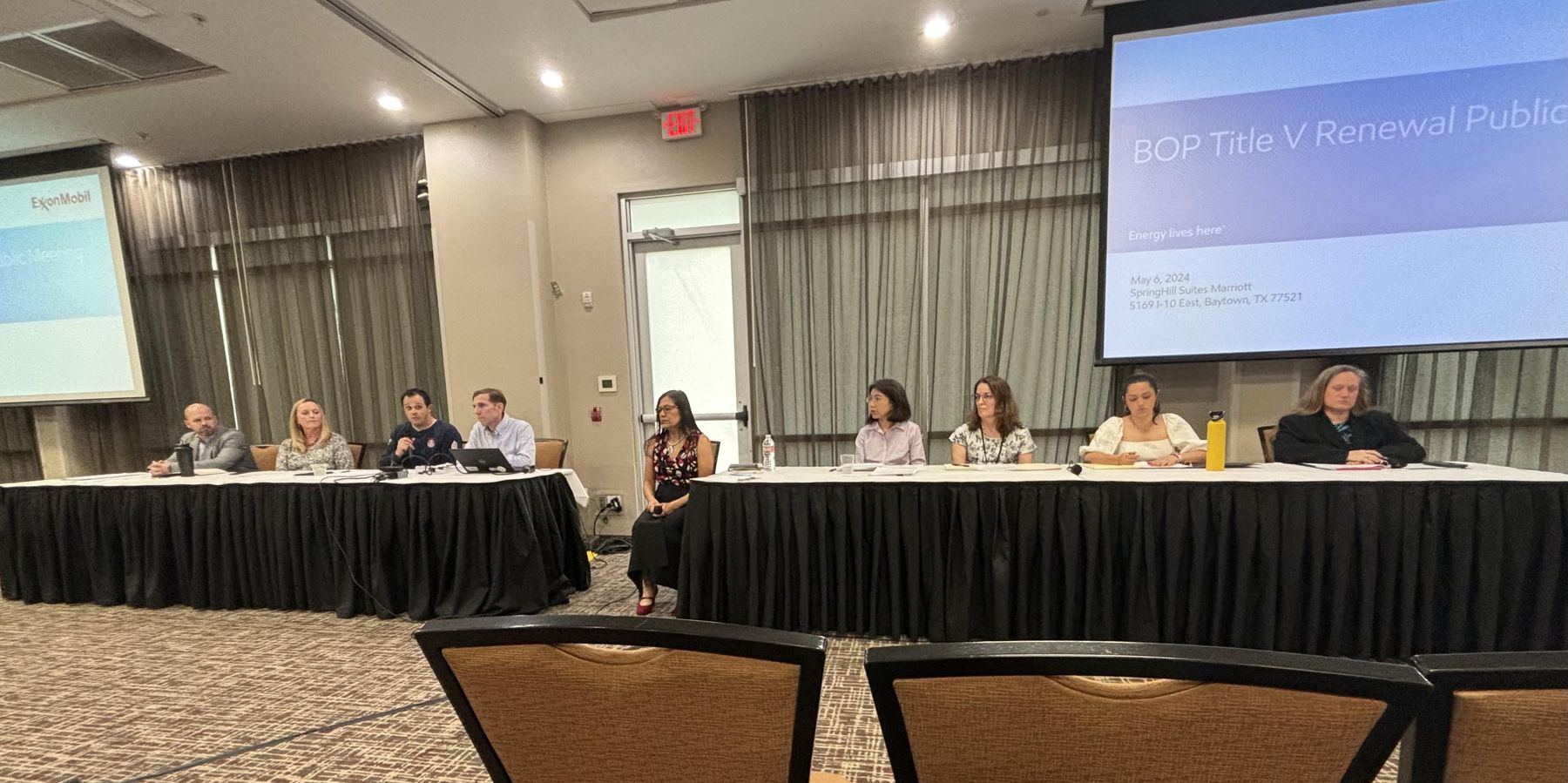
Spanish-speaking residents feel left out of permitting process at massive Exxon petrochemical plant in Houston-area
“It is important to ensure meaningful engagement efforts are inclusive and accessible to all diverse members of our communities.”
BAYTOWN, TX — As Exxon Mobil moves forward with federal re-permitting for its massive petrochemical complex in the Houston area, residents remain frustrated with the lack of accessibility and Spanish-language outreach from the state and company.
At issue is Exxon Mobil’s application for its Baytown Olefins Plant permit, which must be approved by the the Texas Commision on Environmental Quality every five years to continue operations.
To read a version of this story in Spanish click here. Haz clic aquí para leer este reportaje en español.
The olefins plant — which produces about 10 billion pounds of petrochemical products annually — is part of Exxon’s petrochemical complex in Baytown, which includes the nation’s third-largest refinery. The renewal has been contested by residents and activists due to pollution concerns and 12 consecutive quarters of Clean Air Act violations at the Exxon Mobile Baytown Complex. If approved, the permit would allow the facility to operate for the next five years.
In addition to pollution, residents have expressed concern over community access to meeting and permitting information, especially for Spanish-speaking residents. The U.S. census estimates that 52.2% of Baytown’s population is Latino and 44.8% of Harris County speaks Spanish. That rate is higher in communities that border industry on the Houston Ship Channel, as high as 68% in some locations.
A public hearing this week — the second in as many months — was held for community members to bring comments or questions to Exxon Mobil or the TCEQ.
At the previous hearing community residents brought up concerns about the meeting notice not being published in Spanish on the TCEQ’s site. TCEQ attorney Amy Browning said that the reconvening was a result of the agency’s failure to “publish (the meeting notice) in Spanish electronically on the commission’s site.”
In addition to the original meeting notice not being published in Spanish, Texas Environmental Justice Advocacy Services, or TEJAS, representative Deyadira Arellano pointed out at both meetings that Exxon’s slides related to their plant operations are not translated to Spanish. At this week’s meeting, Exxon approached her in the break period to offer slides in Spanish to her email. However, Arellano said that her frustration resided with the TCEQ.

TEJAS representative Deyadira Arellano pointed out at both meetings that Exxon’s slides related to their plant operations are not translated to Spanish.
Credit: Cami Ferrell for EHN
“The TCEQ should preview these materials ahead of time,” said Arellano. “It is important to ensure meaningful engagement efforts are inclusive and accessible to all diverse members of our communities.”
Exxon’s Public and Government Affairs Manager Aaron Stryk said that they are “continuously working to improve their Spanish language communications” and do provide Baytown-related communications updates in English and Spanish.
“It is important to ensure meaningful engagement efforts are inclusive and accessible to all diverse members of our communities.” - Deyadira Arellano, TEJAS
The TCEQ publishes all public comments and addresses each of them during the permitting process. English-speaking individuals have access to a digital comment interface 24/7 to comment on the permit while the comment period is open. However, Spanish speakers have no accessibility tools provided from the TCEQ to help navigate the English-only interface. Many have to opt to comment in person or mail in their comments and then have their comments translated, according to TCEQ Attorney Christyn Cavasos.
TEJAS has long advocated for better accessibility for Spanish speakers from the TCEQ. The state agency has a history of neglecting Latino and Spanish speaking communities in their outreach, including important air pollution monitoring information.
The permit will undergo a revision phase if needed after the comments have been finalized. Following the revision, the TCEQ will submit the permit to the EPA which has 45 days to reject it. If applicable, emissions units must comply with new federal regulations.













